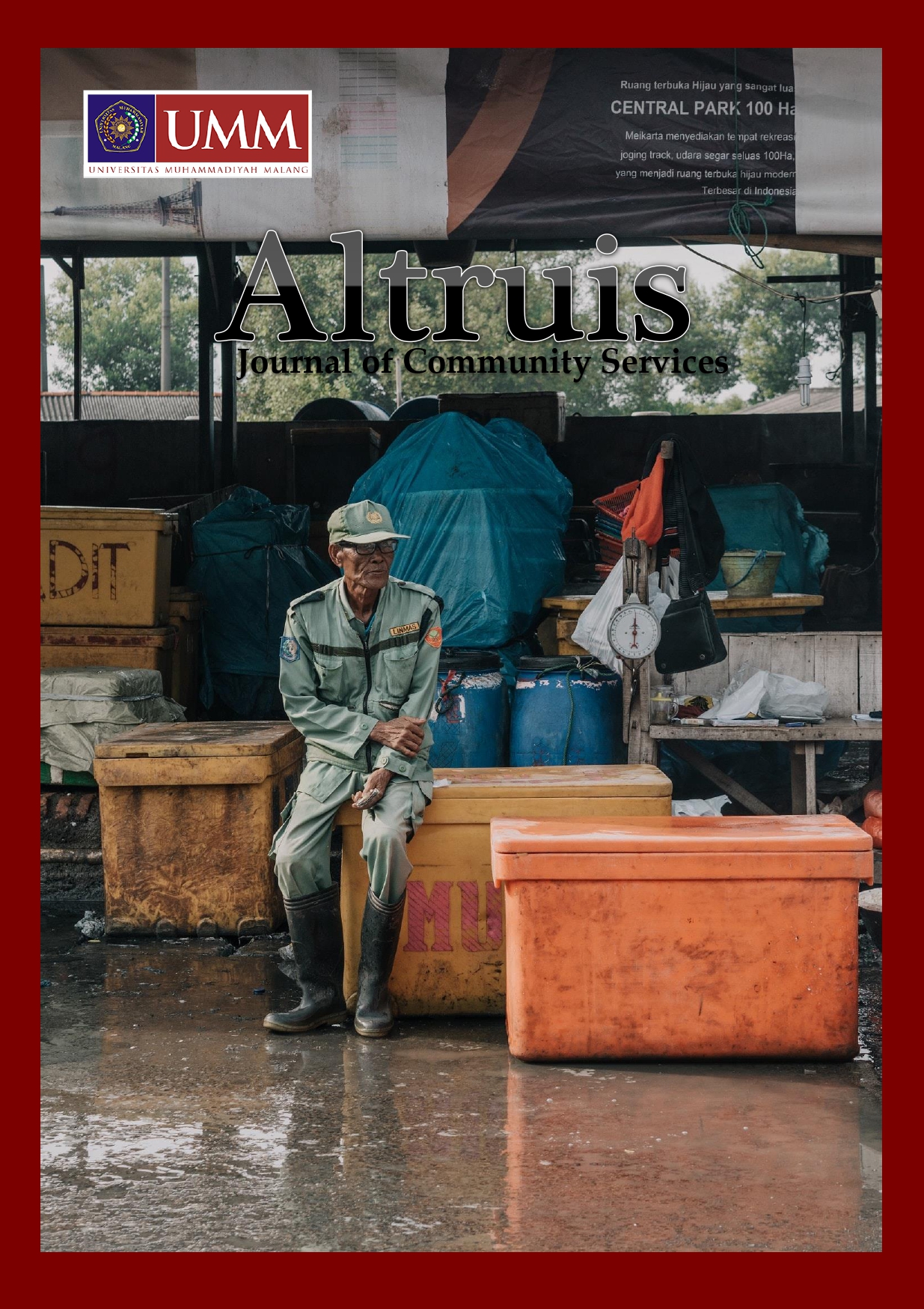Pendidikan Anti Korupsi Bagi Siswa SMA di Kabupaten Maluku Tengah
DOI:
https://doi.org/10.22219/altruis.v1i2.12160Keywords:
Education, Anti-Corruption, StudentsAbstract
Indonesia will get a demographic bonus in 2045 with a hundred years in the country, which means high school students, are people who will be productive and occupy strategic positions in 2045, both in government and non-government fields, what if they life in 2045 is a corrupt generation. Then the aim of this service is to carry out the tri dharma of tertiary institutions and to foster an anti-corruption culture for students. Methods of activities by doing design thinking, and socialization. The results of this dedication, the formation of students who have mental anti-corruption and become agents of reform in high school. The changes that occur are they begin to be ashamed to cheat, do not take things that do not have them, form an honesty canteen.
Downloads
References
Salamor, Y. B., & Ubwarin, E. (2017). Kebijakan Penanggulangan Tindak Pidana Narkotika di Wilayah Maluku. Jurnal Muara Sosial, Humaniora dan Seni , 58-64.
Ubwarin, E., Gasperz, N., & Sisinaru, S. (2019). Community Empowerment through The Hygiene and Competitive Production of Balobo Salted Fish. Jurnal Mirta: Pengabdian Masyarakat, 141-150.
Downloads
Published
How to Cite
Issue
Section
License
Authors who publish in Altruis agree to the following terms:
- For all articles published in Altruis, copyright is retained by the authors. Authors give permission to the publisher to announce the work with conditions. When the manuscript is accepted for publication, the authors agree to automatic transfer of the publishing right to the publisher.
- Authors retain copyright and grant the journal right of first publication with the work simultaneously licensed under a Creative Commons Attribution-ShareAlike 4.0 International License that allows others to share the work with an acknowledgment of the work's authorship and initial publication in this journal.
- Authors are able to enter into separate, additional contractual arrangements for the non-exclusive distribution of the journal's published version of the work (e.g., post it to an institutional repository or publish it in a book), with an acknowledgment of its initial publication in this journal.
- Authors are permitted and encouraged to post their work online (e.g., in institutional repositories or on their website) prior to and during the submission process, as it can lead to productive exchanges, as well as earlier and greater citation of published work (See The Effect of Open Access).
This work is licensed under a Creative Commons Attribution-ShareAlike 4.0 International License.


